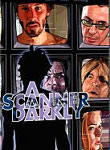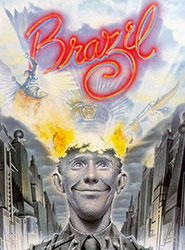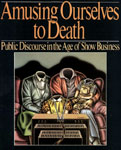 Philip K. Dick is less well known than other science fiction authors of his generation (Asimov, Clarke, Heinlein), but today he enjoys a growing reputation as his novels are adapted to the screen. Of these, A Scanner Darkly is the most recent, the most personal, and perhaps the most important. It is a semi-autobiographical story of drug addiction, corporate greed, and universal surveillance. Several of the characters are based on real people the author knew, and the damage done by drugs is not hypothetical. The story anticipates several developments of the last twenty years: pharmaceutical companies inventing diseases to fit the drugs they produce; a surveillance society with video cameras everywhere; and human beings who are written off by the society they live in.
Philip K. Dick is less well known than other science fiction authors of his generation (Asimov, Clarke, Heinlein), but today he enjoys a growing reputation as his novels are adapted to the screen. Of these, A Scanner Darkly is the most recent, the most personal, and perhaps the most important. It is a semi-autobiographical story of drug addiction, corporate greed, and universal surveillance. Several of the characters are based on real people the author knew, and the damage done by drugs is not hypothetical. The story anticipates several developments of the last twenty years: pharmaceutical companies inventing diseases to fit the drugs they produce; a surveillance society with video cameras everywhere; and human beings who are written off by the society they live in.
 The 2006 movie sticks close to the original novel, deftly exploiting Dick’s dry humor and sense of the absurd. The action centers around a loose group of “friends” who all share interest in (and possibly addiction to) the ominous “substance D.” In the words of one character, “There’s no week-end warriors on the D. You’re either on it, or you haven’t tried it.”
The 2006 movie sticks close to the original novel, deftly exploiting Dick’s dry humor and sense of the absurd. The action centers around a loose group of “friends” who all share interest in (and possibly addiction to) the ominous “substance D.” In the words of one character, “There’s no week-end warriors on the D. You’re either on it, or you haven’t tried it.”

 Brazil
Brazil
 His basic premise is that we have moved beyond the age of information-rich typography into a new world dominated by images and sound bites. The unit of discourse is the thirty second television commercial, which attempts to make an emotional connection with viewers rather than inform them. The result is a dumbing down of everything from the evening news to
His basic premise is that we have moved beyond the age of information-rich typography into a new world dominated by images and sound bites. The unit of discourse is the thirty second television commercial, which attempts to make an emotional connection with viewers rather than inform them. The result is a dumbing down of everything from the evening news to